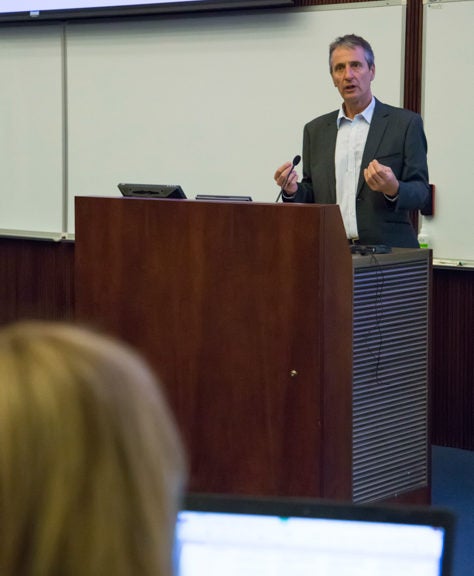GU-Q Co-hosts Regional Training Course on Human Rights Advocacy and Migrant Workers

The Diplomacy Training Program (DTP), a regional training course on human rights advocacy and migrant workers in the Middle East was recently co-hosted by Qatar Foundation and GU-Q at the University’s Education City campus. The five-day program was organized by the Migrant Forum Asia (MFA) with support from Qatar Foundation. The main participants were members of foreign NGO’s, Qatar Ministries, and other Qatari organizations invited by Qatar Foundation to take part in the training course.
At the opening ceremony the event facilitators from organizing partner organizations explained the background to the program, set the regional and national context and outlined the aims and expectations of the event. The training program of the course was designed to build the knowledge and skills to protect and promote the human rights of migrant workers. The course enabled the participants to more effectively use internationally agreed standards and mechanisms in their advocacy for the human rights of migrant workers in the Middle East. The event provided a valuable forum for the sharing of knowledge and skills, and for the building of support networks and collaboration between countries of origin and destination.
In welcoming the participants, Dr. Gerd Nonneman, dean of Georgetown in Qatar said, “At Georgetown University we are dedicated to promoting intellectual, ethical and spiritual understanding through serious and sustained discourse among people of different faiths, cultures and beliefs. This training program complements this mission by bringing together key local stakeholders in this region for a productive dialogue aimed at enhancing the treatment of migrant workers. We are delighted to be co-hosting these discussions with Qatar Foundation, who have been a crucial partner in our own efforts in this regard, and a national and regional leader on the issue.”
The early part of the program concentrated on developing knowledge and understanding of human rights standards and frameworks and complaint mechanisms. The latter half of the program had more of an emphasis on skills development in relation to different aspects of advocacy for migrant workers. Interspersed through each day of the program were presentations from the participants – a sharing of reflections and lessons learned from their work for migrant workers in their specific context. These presentations served to enrich the training – as well as to enable the building of links between participants. There was simultaneous translation in Arabic and English through the program.
During the event it was noted that this was an initiative, built on years of collaboration between the partners and made possible by changes in the Middle East, and a growing awareness of the need to address the issues of migrant workers in the GCC states. On the final day of the program certificates of completion were presented to the course participants.